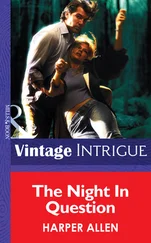Richard Gordon - A QUESTION OF GUILT
Здесь есть возможность читать онлайн «Richard Gordon - A QUESTION OF GUILT» весь текст электронной книги совершенно бесплатно (целиком полную версию без сокращений). В некоторых случаях можно слушать аудио, скачать через торрент в формате fb2 и присутствует краткое содержание. Жанр: Юмористическая проза, на английском языке. Описание произведения, (предисловие) а так же отзывы посетителей доступны на портале библиотеки ЛибКат.
- Название:A QUESTION OF GUILT
- Автор:
- Жанр:
- Год:неизвестен
- ISBN:нет данных
- Рейтинг книги:4 / 5. Голосов: 1
-
Избранное:Добавить в избранное
- Отзывы:
-
Ваша оценка:
- 80
- 1
- 2
- 3
- 4
- 5
A QUESTION OF GUILT: краткое содержание, описание и аннотация
Предлагаем к чтению аннотацию, описание, краткое содержание или предисловие (зависит от того, что написал сам автор книги «A QUESTION OF GUILT»). Если вы не нашли необходимую информацию о книге — напишите в комментариях, мы постараемся отыскать её.
A QUESTION OF GUILT — читать онлайн бесплатно полную книгу (весь текст) целиком
Ниже представлен текст книги, разбитый по страницам. Система сохранения места последней прочитанной страницы, позволяет с удобством читать онлайн бесплатно книгу «A QUESTION OF GUILT», без необходимости каждый раз заново искать на чём Вы остановились. Поставьте закладку, и сможете в любой момент перейти на страницу, на которой закончили чтение.
Интервал:
Закладка:
'Did you see that fellow Crippen?'
'He's nothing but a quack.'
'But he's a real doctor. I had it from Professor Munyon himself.'
'He's a quack, and so is Professor Munyon.'
'Pretty free with your accusations, aren't you? How can you tell who's a quack and who isn't? That takes a doctor to know.'
'It was a doctor who told me.'
'Doctors have a lot of professional jealousy.'
'This was a doctor whose opinion I'd trust utterly.'
'Who was he?'
'He's English. He was at the clinic, looking after Baby. She must have written about Dr Beckett?'
'How'd he know Crippen?'
'We met him together. Dr Beckett had returned to London.'
'You'd corresponded with him?' her father asked suspiciously.
'I had become friendly with him.'
'Don't go wasting yourself on doctors. I can hire any doctor in the world I like, and fire him the moment I feel like it.'
'Very well, papa,' Nancy said again.
Baby's prominence in New York society was increased as the centre of its most fashionable funeral that fall. For the rest of October, the compass of Nancy's mind swung too violently to plot a steady course through life. The isolated monotony of Switzerland seemed a more natural existence than the gay gregariousness of New York because it had been endured for a purpose, like monasticism or a prison sentence. To have mixed as a social equal with the unmannered and pretentious Crippens now disgusted her. Mr Ruston and Mr Wince made her tremble at a brush with evil. But she knew that Eliot was right-'The upper classes have a far leaner time of it than a costermonger, who can revel in the unstinted enjoyment of his bodily functions.' Now Eliot must be as dead as Baby.
In the middle of November, Eliot wrote to her. Nancy was alarmed, because Mr Bryan saw every envelope entering the house and would report the unfamiliar handwriting to her father. The letter began, _Dear Nancy,_ and after a sympathetic half-page about Baby described cheerfully his free surgery in the greengrocer's shop.
_The municipal elections have just ended, _he informed her. _With only two of the nine women town councillors in England re-elected. You see how the suffragettes' campaign is self-defeating? Violence is a useless political weapon, unless cloaked in subtlety. They say we are in for a wet winter, the weather is filthy today, the Thames rising by the hour. I pray it will not drown the entire House of Lords before their opportunity to reject the People's budget. Then shall be my chance. Who knows, that you must put 'M.P.' after my name, should you choose to write?_
It ended, _Yours sincerely, Eliot._ Nancy thought it as unromantic as a prescription.
Nancy nearly wrote back. She sat over her thick, cream wavy-edged paper, fountain pen uncapped. It seemed dereliction of duty towards her father. Instead, she accepted the invitation to a dance with Clarrie Burgess.
Clarrie was three years older than her, heir to a railroad fortune. When Nancy had begun accepting the shower of invitations after Baby's funeral, Clarrie's eagerness in courting her, she suspected, indicated society's relish for a fresh face. Within a week, his presents had escalated from flowers and chocolates to a diamond bracelet. The same evening, John Grange called her to his study. He did not mention Eliot's letter, but with the air of offering sound advice to an investor declared that Clarrie Burgess would make her an excellent husband.
'He would not,' said Nancy.
'Why?'
'He has a scented moustache.' Her father was too puzzled to reply.
In the _New York Times_ two mornings later, Nancy found half-a-dozen columns about phthisis. It was as common as drunkenness or lice among the crammed tenement dwellers of the lower East Side. Her knowledge of pulmonary tuberculosis, its progress, its treatment, was singular among the untrained women of New York. The notion of turning this to some use was exciting. It would restore the purpose to her life which had died with Baby.
Everyone had heard of Lillian D Wald's Visiting Nurse Service. The charity attracted the generosity of Nancy's friends as more genteel than the Salvation Army. Nancy telephoned for an appointment at 265 Henry Street. She drove to the lower East Side in a hansom, remembering that in the same squalor her mother and her relatives had met hastened deaths. Was she lucky to have risen from such society? Or wicked to tolerate it at all? As political thought always turned her mind to Eliot, she left the question open.
The Henry Street Settlement was housed in a brownstone, with shutters and window-boxes, a tree outside protected by railings, half a dozen children playing on the front steps, staring and giggling as she banged the big brass knocker. She was taken to a small, square, linoleum-floored semi-basement with faded yellow wallpaper and pair of hanging gas-globes. A roll-topped desk was jammed against a stout cupboard, library shelves along one side were filled with neat piles of pink lint, rolled bandages, basins and heavy metal boxes. In the corner stood a small washstand with basin and pitcher, the middle had a board and a flat-iron. There was a flower vase standing empty, and a mirror in which she felt no one bothered to look. The decorations were photographs of nurses in groups, a sombre picture of President Lincoln and a framed red-and-white card ordaining DO IT WELL.
Two mature women sat on rush-seated chairs, both in blue-and-white check cotton dresses with flared skirts, a black tie and a broad white belt. The one with the centre parting and the bun was Lillian Wald. The other, with the upswept hair, her partner Mary Brewster, wife of a general.
Lillian Wald told her bluntly, 'You're not the first society lady who's come here, filled with good intentions. But unfortunately, even the best intentions aren't good enough. Once they find the nature of our work-and the nature of the folk we work among-they generally find their disgust hard to swallow. Maybe it would be better for both of us if you expressed your desire to help by writing a cheque?'
'However big a cheque, it wouldn't buy me an easy conscience. And I have come to you with the selfishness expected of my set. I want something useful in my life.'
The reply seemed to excite curiosity. 'But why occupy yourself with the sick? Here at the Nurses' Settlement the work's mostly hard, and always unpleasant till you're used to it. Some ladies never get used to it. You could go across to the Travellers' Aid Society on West 54th. You'd do as much good, saving vulnerable young working women arriving in New York from moral corruption.'
'But I'm interested in medical matters. Particularly phthisis. I've just lost a dear sister from the disease. I was so close to her in a Swiss sanitorium, I felt that I had nursed her myself.'
'Oh, I recollect the item in the newspapers,' said Mary Brewster.
Miss Wald became less forbidding. 'I'll accept you as a do-er rather than a do-gooder,' she decided after more questioning. 'I only take trained ladies, you know. It's public health nursing, for the ultimate good of the whole community of New York. I will not bestow nursing care as a charity upon our patients. That is a derogation of human dignity to the recipient, however inflating for the donor. I enrol a few nurses' aides, which you can try for six months. If you last, you can take regular instruction as a public health nurse. That'll be at Teachers College, in Columbia University. I'm starting a training programme there next year.'
Nancy was as delighted with her uniform as with her acceptance-the same check that Lillian Wald wore herself, with dainty buttoned shoes protected by black spats, a black straw skimmer hat, a wide apron for work, the promise in summer of a white muslin cravat. She carried a black leather bag with two handles, accompanying one of the nurses from tenement to tenement, generally over the rooftops. The poorer you were on the lower East Side, the higher up you lived.
Читать дальшеИнтервал:
Закладка:
Похожие книги на «A QUESTION OF GUILT»
Представляем Вашему вниманию похожие книги на «A QUESTION OF GUILT» списком для выбора. Мы отобрали схожую по названию и смыслу литературу в надежде предоставить читателям больше вариантов отыскать новые, интересные, ещё непрочитанные произведения.
Обсуждение, отзывы о книге «A QUESTION OF GUILT» и просто собственные мнения читателей. Оставьте ваши комментарии, напишите, что Вы думаете о произведении, его смысле или главных героях. Укажите что конкретно понравилось, а что нет, и почему Вы так считаете.






